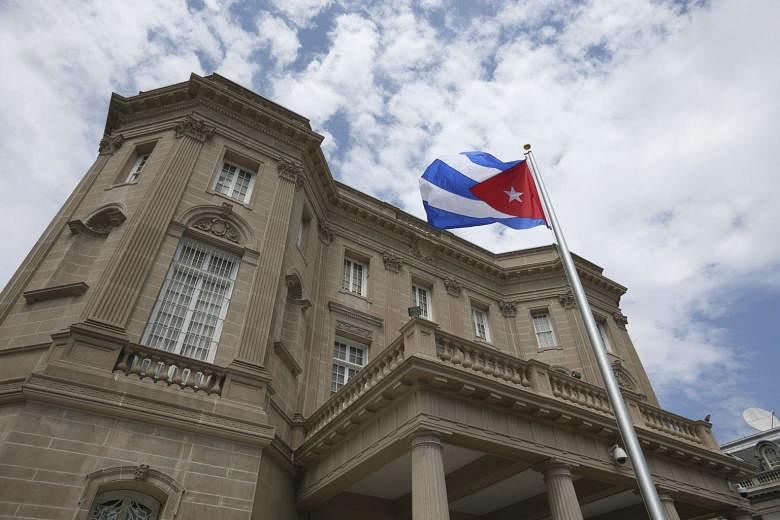WASHINGTON (WASHINGTON POST) - The State Department is expelling 15 Cuban diplomats after slashing the US mission in Cuba last week in response to months of unexplained injuries to American personnel.
The decision announced on Tuesday (Oct 3) is certain to deepen the rift between the two countries over what the State Department has called "specific attacks" on US diplomats during the past 10 months. The United States has not blamed Cuba, which has denied any involvement and cooperated with FBI agents dispatched there.
"We are not assigning culpability," said a State Department official, speaking on condition of anonymity under administration guidelines for briefing the media. The expulsions, the official said, aim to "underscore to the Cubans that they must take more actions to protect our people on the ground."
The expelled Cubans, a list of whom was presented to the Cuban ambassador on Tuesday morning, will have seven days to leave the country. Last week, the State Department said it would pull more than half its personnel out of the US embassy in Havana, and they are expected to have departed by the end of the week.
Neither the FBI nor a separate Cuba investigation has been able to determine what and who is causing the maladies that have befallen at least 22 Americans stationed at the embassy, with symptoms ranging from hearing loss to cognitive disorders.
They are believed to have been "targeted" either in their residences within compounds owned by the Cuban government, or in hotels. The most recent incident occurred in late August, but some victims are still being diagnosed. Only on Monday, the State Department confirmed an additional victim, who is believed to have been attacked in January.
One possibility being explored is whether the stricken diplomats were made ill by a "sonic attack," though the State Department has refrained from using that term. It's also possible they are being singled out by a third country seeking to create tension between Cuba and the United States, which normalised relations and re-opened their embassies only two years ago after half a century of enmity.
Now what had been hoped was a historic opening is backsliding to an era of mutual suspicion and recrimination. Last Friday, the State Department issued a travel warning advising all American visitors to stay away because their safety could not be guaranteed, a measure that is certain to harm Cuban tourism, the most dynamic segment of the economy. It also suspended issuing visas to Cubans, a step that makes it difficult for Cuban Americans to reunite with relatives.
Cuban officials have said they are disappointed with the US measures, which sent Foreign Minister Bruno Rodriguez to Washington last week in a futile attempt to dissuade Secretary of State Rex Tillerson from employing them. But the Cubans have said they will continue to cooperate with US authorities in what is already an unprecedented willingness to allow FBI agents into Cuba to investigate.
The 15 Cuban diplomats being expelled is roughly the same percentage being withdrawn from the US Embassy, officials said, though the raw numbers of personnel ordered to leave Havana has not been disclosed.
The Americans will not be allowed to return to Cuba until the government in Havana can assure their well being, said the US official assigned to brief reporters on the expulsion. He could not, however, explain how the Cubans could offer those assurances if it has not been determined how the injuries were caused or when it may be deemed safe for diplomats to return.
"I think the conversations have focused on the Cuban government's responsibility to ensure the safety and well being of diplomatic personnel that they host in their country," the officials said.
"It is not for us to outline a set of criteria to ensure that environment. We are making it clear that the safety and well being of our people is being affected by these health attacks. We can no longer expose them to the environment down there."

